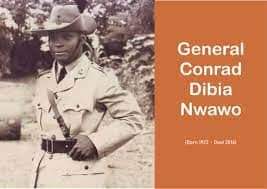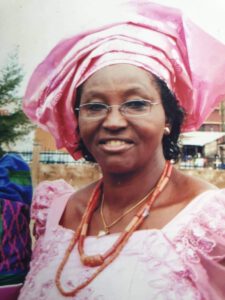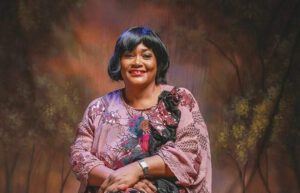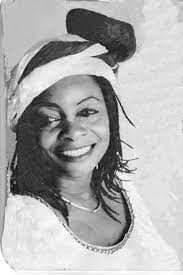By Sylvester Asoya
Onicha-Olona is one of the most well-known towns in Aniocha North Local Government Area of Delta State. In this vibrant community of possibilities, show business, social pursuits, pageantry and associated matters, run deep. For instance, in 1960, the community gave Nigeria, Rosemary Anieze-Adams who became Miss Independence at the dawn of self-rule over six decades ago. The beauty queen who later married a British, also featured in a couple of television drama series on the Nigerian Television Authority, NTA.
For many years, Anieze-Adams participated and anchored television programmes that meaningfully engaged young people and women in the late 1970s. Anieze-Adams eventually became a respected international performer and an active voice in the world of entertainment, diplomacy, fashion and gender activism.
But it is interesting to note that Onicha-Olona’s artistic relevance and ascendancy took a new turn in the 1970s and ‘80s with the emergence of imaginative Disc Jockeys like DJ Temptation, DJ Tossy, DJ Auschief, DJ Pegan and other big names in showbiz from the community who toured and performed in different towns and locations. Naturally, these DJs exerted considerable influence on popular culture in Onicha-Olona and some parts of the old Bendel State where they crisscrossed as young men in search of meaning. In fact, they were permanent fixtures during marriage rites and traditional ceremonies across Bendel, a state well known in those days, for its social consciousness and mobility. So, these entertainers influenced a generation of artistes who are still holding their own across the different genres of music and performing arts in Nigeria and outside.

Aside from the fact that talents are easily found in almost every part of the six villages that make up the town, Onicha-Olona as a community, understands and values arts and culture, and this is one of the town’s major assets. Music, as a dominant staple, is also beginning to define, enrich and shape the people through positive self-identity, solidarity and engagement in the ever-changing world of entertainment. Today, Onicha-Olona is regarded as one of the communities in Nigeria that produces the most musicians. Over the years, this unusual town has also produced more than a dozen well-known and musically gifted artistes, both male and female, some of whom, have performed on both national and international arenas.
However, after Anieze-Adams made headlines as a beauty queen and TV personality, St. Augustine, Onicha-Olona’s foremost performing artiste and cultural ambassador, took on the highlife world and conquered. For many years, he made waves with his instructive and creative songs that still resonate across Nigeria and many parts of West Africa where he remains a folk hero. With his philosophical and trademark melodies like Ashawo No bi Work, Onwu Ama Dike, Jehovah Bu Eze, among others, he remains a highly regarded artiste that is still discussed among highlife lovers today.
Those were the golden years of highlife when nothing else mattered in the music world.

But as St. Augustine entertained highlife enthusiasts, there were also other Onicha-Olona artistes digging deep into other genres of music like pop, rap, reggae, blues, dancehall and cultural music. Chichi of Africa, a well-known kid music star back in the day, and Roland Onwuama, her equally renowned father who was also a musician, producer, writer and a former first Vice President of Performing Musicians Employers Association of Nigeria (PMAN), hail from Onicha-Olona.
This uncommon community also gave the world Ras Kimono (the Rub-A-Dub-Master) and creator of hit songs like What’s Gwam?, Natty Get Jail, Kimono de Want, Rastafari Chant, Under Pressure, Jah Guide, Kill Apartheid, Gimme Little Sugar, Rhumber Style, Babylon Burning and more. Similarly, there are other artistes from Onicha-Olona like Austin Onyewadume, another great musician; Barbra Odoh, (a Nollywood actress, famous for her role in Glamour Girls, a 1994 flick); Joan Elumelu Okorodudu (singer, dancer, cosmetologist, photographer, track and field queen and Olympic medalist at Moscow 1980); Soule E Baba of Soule Baba Dey Here fame, also regarded as one of Nigeria’s Kings of Soul; Toni Tuklan, a Germany-based musician and founder, Cleartone Records; Oge Kimono (Ras Kimono’s daughter) and Kandy Sea, another popular reggae artiste.
Precious Kanayo is a business man from the town. “Onicha-Olona is a creative and music loving community. For me, that is our logo and we are very proud of it”. However, Kanayo insists there is also a God factor in the affairs of Onicha-Olona, especially with regard to its people, why they do the things they do and their remarkable achievements in different fields of endeavour. “We are a special blessing from God. And let me tell you this: our dialect is even lyrical and fascinating to a good number of people, especially for those visiting our town for the first time. Are you still wondering why we are a musical community? To fully appreciate our creative gifts and innate abilities, visit our community during New Yam Festival, Christmas and Easter seasons when we all come home to celebrate, then you will know who we are. During such periods, the best of us as lovers of music, culture and entertainment, come alive”.

Another indigene, Augustine Afam Ugah, a culture activist and environmentalist shares a similar view. “Olona is music and music is Olona. We are blessed as a people, and we know it. As a matter of fact, there are different musical and vocal groups in every nook and cranny of our villages and quarters, and this account for our inclination towards music and the arts generally. You are aware that this is just one town, we are not even yet a local government headquarters but there is absolutely no talent that is lacking here. We have everything in abundance”.
Felix Odih is a prince from Onicha-Olona. He is also a community leader, a retired banker and poet with good knowledge of the town’s interesting politics, history, economics and religion. The fact that the father of this great son of the soil, His Royal Highness, Obi Odih reigned between 1944 and 1955 further empowered him with additional insight on the tradition, culture and the arts of Onicha-Olona. Nevertheless, the prince acknowledges the role of providence, education and enlightenment in the life of this town that embraced the missionaries and Western education at a time associating with Christian crusaders and mission churches were considered a taboo in many communities of Africa. Odih, who was also President-General, Onicha-Olona Development Union, OODU from 1999 to 2001, maintains that the town’s sustainable peace, rapid economic, political, social and cultural transformation, hinge on many things: education, collaboration, social ventures, the community’s early exposure to Christian faith and their appreciation and love for knowledge and scholarship. “Our forebears understood early, the importance of education. What I mean, is that kind of education that has everything to do with enlightenment, socialization, culture and tradition. Let me clear: we are a people who do not leave anything to chance. That is who we are and we have no apologies. We are also very conscious and interested in the common good. That is the reason we are acknowledged as a people who pull resources together for the betterment of all. Again, when we elect socio-cultural and political leaders, we do so deliberately because of our belief that only those with capacity, deep understanding of issues and leadership skills, can serve effectively, and it has worked for us”.

Outside of its strategic location and status as one of the fastest growing towns in Aniocha North Local Government Area, Onicha-Olona also shares border with other fast developing communities like Akwukwu-Igbo, Atuma, Issele-Mkpitime, Ezi, Obomkpa, Ukala-Okpunor, Ubulubu and Idumu-Ogo. In many quarters, the town is even regarded as a very peaceful community that takes great pride in its peacefulness. And the people of Onicha-Olona have a curious way of keeping first-time guests coming back. In fact, there is a growing perception around the people’s welcoming disposition to visitors and strangers, and this is engendering cross-cultural marriages and strong friendships across the world. Today, some non-indigenes who came many decades ago with big dreams are still around and fully integrated. And many of them are happy, fulfilled and leading an extremely ideal life among their hospitable host. All these, according to Odih, is essentially a product of Onicha-Olona’s Christian faith and charity which the people wear boldly as a badge of honour every time and everywhere.
Apart from its reputation as an agrarian community where indigenous culture and tradition thrive side by side with modern Western culture and social life, Onicha-Olona is also a land of heroes. Many years ago, Sunday Augustine Egbo, a good-natured technocrat, former federal Permanent Secretary and one of the town’s most famous sons, embraced mechanized farming and spurred many local farmers with his dream and innovation in the field of agriculture and animal husbandry. It was obvious at the time, that Egbo was driven by his desire to create a new farmers’ hub, provide fresh agricultural insight for his people, empower them by boosting incomes and also achieve self-sufficiency in food production in his locality. He succeeded in the long run. For all these and more, he remains unforgettable.

Other heroes by virtue of their excellent military training and combat experience include Col. Conrad Nwawo who belongs to Nigeria’s elite league of first generation of army officers, Group Captain Michael Amanyeiwe, Captain Christopher Dede Isiakpona, Major Calistus Dada Nwambuonwo, Commodore Dele Nwambuonwo, Major Otakpo, Major Jikeme, Commander Cyril Jideonwo and Brigadier-General Raymond Ochei who is keeping the heroism fire today, burning.
All are uncommon heroes, including those who served in the Nigeria Police and the paramilitary like Christopher Afam, a former Assistant Inspector of Police (AIG); Morgan Elumelu, a director who served at the defunct Nigerian Prisons Service; Celestine Elumelu, a Commissioner of Police and his sister Augusta, one of Nigeria’s first female police officers. But before Afam, Elumelu and other distinguished modern police personnel, there were eminent colonial police officers like John Paul Enyogai, Mathias Azike who received a royal medal for bravery from Queen Elizabeth II and Bright Ikediashi, among others who showed the way.
Without a doubt, Onicha-Olona has come a long way.
In the past when it was a big deal to be appointed principal of a secondary school, the community had over a dozen respected secondary school administrators, educationists and academics like Dr. Andrew Okonkwo Nwani, Ifeanyi Tony Ekwemalor, Sam Okolo (a.k.a. Sam Kolo), Michael Odikpo, Jonathan Keshi, Patrick Ofuonye, Alphonsus Enunwaonye, Ofulue Gwadia, Pius Ogbolu, Chief Stephen Kandudi (S.K.) Ejidoh, Eric Ochei, Michael Enyogai and Emma Onweazim.
In politics, sports, business, service and the corporate world, Onicha-Olona is also a rising star of relatively great size. The actors that readily come to mind include Israel Ogbue, the nonagenarian boardroom guru, philanthropist and former Chairman, United Bank for Africa, UBA; Benedict Peters, billionaire founder of Aiteo Group, Nigeria’s biggest indigenous oil producing firm (ranked Africa’s 17th richest person); Dr Emma Mekwunye, a former Medical Director in the old Bendel State; Agnes Ozili Aligbe (nee Ukwadia, a.k.a. Flamingo), Nigeria’s first national hockey captain who also represented and won medals for Bendel State and Nigeria in major athletic competitions and Chika Chiejine, regarded by many as a good example of an entrepreneur. The town also has patriots like Faustinus Peters, Idowu Peters, Joseph Bogu, Tony Obuaya, Mathias Ifejika, Patience Ifekwune, Victor Ochei (former Speaker of Delta State House of Assembly) and others in the political arena, including Lauretta Onochie, the controversial social media aide to President Muhammadu Buhari.
Even priests and the religious are not left out; they are firmly rooted in the two dominant Christian denominations in Onicha-Olona. For the Catholics, the community produced Reverend Fathers Emeka Ohanwusi, Stephen Uzoma, Simon Onyewadume, Emmanuel Ogbolu, Cyril Ofuonye, Dube Mordi, Jude Onwuanuku and Pa Thomas Chiejine, one of the town’s most accomplished Catholic Catechists.
On the flip side, the Anglicans have Reverends Onwuama, Ogom, Charles Osemene, Christain Ochei, Louis Ochei, Meshack Okodike, Gideon Okwechime, Christopher Nmanabor and Ngozi Ezeiwu.
For this extraordinary town, the challenge and hope are on the people of the future, and this is undeniable. At the moment, it is fundamentally all about the next generation and their disposition towards the sustenance of growth and a great tradition of excellence, driven by a culture of hard work, consciousness, consistency and solidarity.
Are the young really ready to keep this enviable flag flying, even in this fast-changing world? In addition, who are the new “signings” for this future that is largely unknown? Certainly, this is the time for young people of this model community to live and think on their feet as times change. The belief generally is that the coming generation must act like dynamic architects who create for the present-day with good knowledge of the past for the future. After all, that future, from all indications, is already within touching distance.
• Asoya is a senior journalist and prolific art writer.